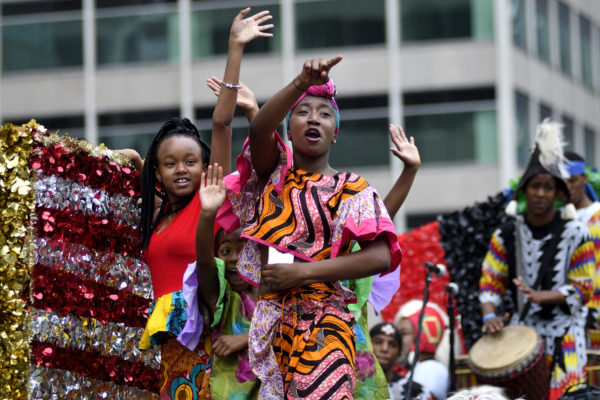Juneteenth, the celebration of emancipation that commemorates the June 19, 1865, date when Black Texans in Galveston received news that slavery and the Civil War had ended, represents a new birth of American freedom – both historically and in our own time.
The racial justice demonstrations that rocked the nation last year galvanized a reconsideration of not just Black lives, but Black history. Juneteenth was already recognized in Texas, the last Confederate state to announce the Emancipation Proclamation. But now it is national phenomenon — a way for all Americans to come to better understand a history of racial slavery and Reconstruction that never ended and continues, for better and worse, to shape all of our lives.
After unusually quick and unified action this week by Congress and President Joe Biden, Juneteenth will now be celebrated as a national holiday – one that would expose us to the full depth and breadth of American history, an exploration that would be at times painful but ultimately benefit the nation’s efforts to eradicate systemic racism. The proliferation of voter suppression legislation that has been introduced in more than 45 states since the presidential election makes Juneteenth a symbolic victory that is substantive as well. It makes the Juneteenth holiday more important now than ever.
That’s because Juneteenth offers us a window into Reconstruction, the long effort to transform America into a multiracial democracy that began in 1865. Contemporary issues of systemic racism — ranging from voter suppression to police brutality and mass incarceration to racial segregation in schools and neighborhoods to wealth and income gaps — all have their roots in this era that Juneteenth casts a spotlight on.
This longer view allows for a reconsideration of American history. The annual Juneteenth holiday now represents an entry point for a better understanding of the “abolition democracy” that guided efforts to build a multiracial democracy from the bottom up.
White supremacist efforts to “redeem” the South from Black citizenship and dignity paralleled the era’s racial progress. The introduction, state by state, of Black Codes designed to rob Black people of the franchise proved to be the tip of the iceberg.
White Americans used physical violence to limit Black people’s access to electoral office, serve on juries, and own and cultivate land. Terms such as sharecropping, debt peonage and convict leasing hardly do justice to the systemic nature of racial oppression innovated during Reconstruction.
The ratification of the 13th Amendment ended racial slavery, but white landowners, supported at the federal level by President Andrew Johnson, kept their land and set out to coerce Black laborers in a manner that recalled the bullwhip days of racial slavery. Black agricultural workers found themselves compelled to work for subsistence wages under the threat of harassment, violence, and worse.
Convict leasing ushered in the first wave of racial profiling connected to the criminal justice system. Southern states passed a wave of vagrancy laws expressly designed to arrest, incarcerate and put to forced work Black men and women during Reconstruction.
All of these racist policies served as a precursor to contemporary political crises of mass incarceration, voter suppression, and more. Racial segregation, what has been characterized as Jim Crow, became the most visible feature of a reordered political landscape policed by violence from local authorities, racial terrorists and federal indifference.
America is wise to make Juneteenth a federal holiday. The nation now has a unique opportunity to listen to the voices of Black women and men who helped to reconstruct American democracy against long odds. Their stories continue well into the 21st century as the racial justice protests illustrated for the world to see.
Juneteenth offers the rare chance to foster a new national consensus, one forged not through lies, evasions or half-truths, but through the crucible of coming to terms with the full depth and breadth of American histories of racial trauma that continue to haunt our country despite efforts by some to deny their very existence.
Peniel Joseph is the Barbara Jordan Chair in Ethics and Political Values and founding director of the Center for the Study of Race and Democracy in the LBJ School of Public Affairs at The University of Texas at Austin.
A version of this op-ed appeared in USA Today.




